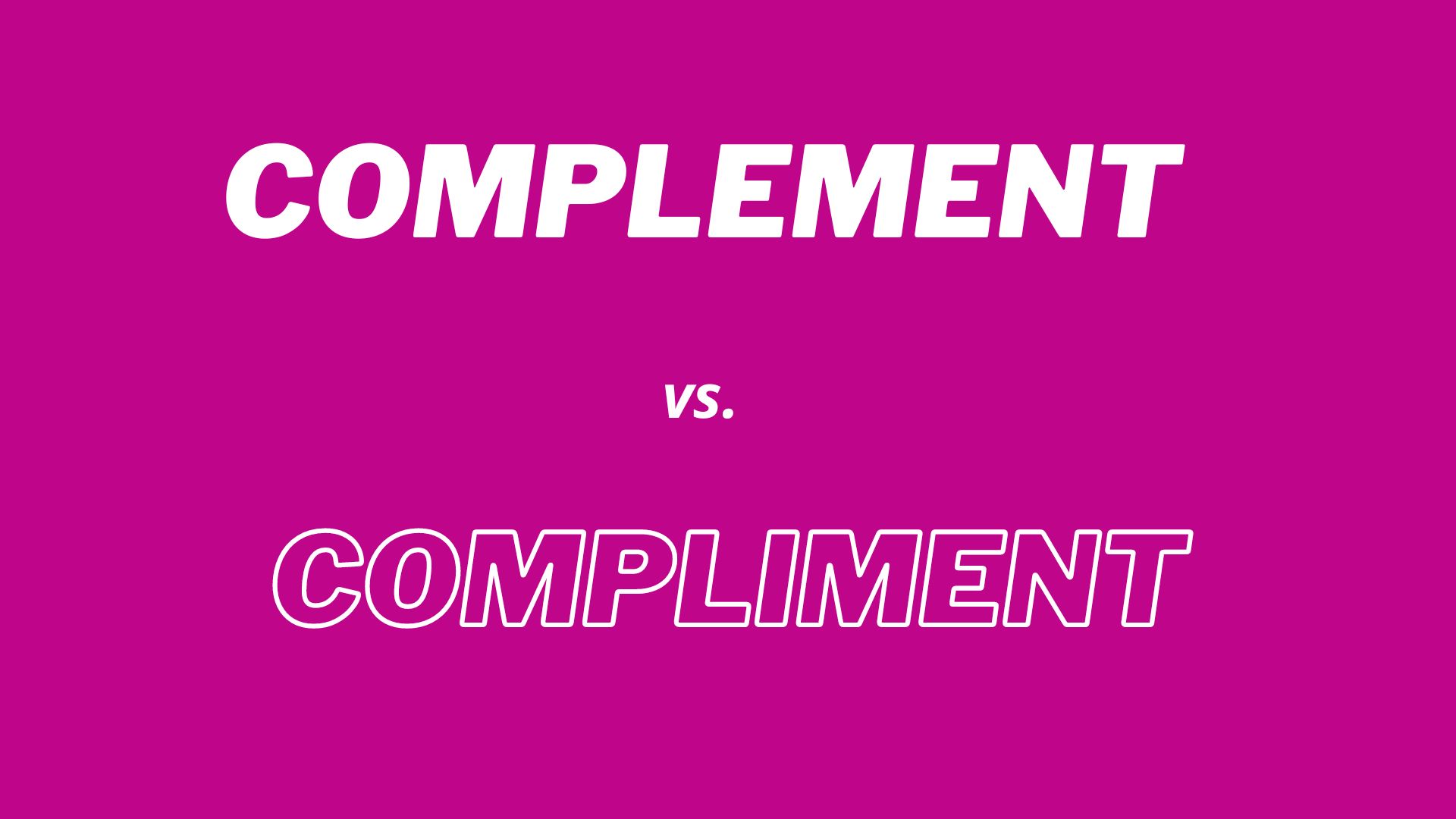


"Complement" and "compliment" are two frequently confused words in the English language. Although they sound alike and have similar spellings, they have different meanings and uses. Choosing between these two words can be tricky, especially for non-native English speakers. This article will help to understand the difference between "complement" and "compliment," their noun and verb usage, and provide common synonyms and examples of ESL activities for students and teachers.
These words can be used as nouns and verbs but have different meanings depending on their usage. As a noun, "complement" (with an "e") refers to something that completes or enhances something else. For instance, the salad is a perfect complement to the steak means that the salad enhances the steak. As a verb, "complement" means to complete or enhance something. For instance, the curtains complemented the color of the walls means that the curtains enhanced the color of the walls.
As a noun, "compliment" (with an "i") refers to an expression of admiration or praise. For instance, she received many compliments on her performance means that she received many words of praise. As a verb, "compliment" means to praise or admire someone. For example, he complimented her on her new haircut, which means that he admired her new haircut.
|
Synonyms of "Complement" |
Synonyms of "Compliment" |
|
Noun: enhancement, completion, addition |
Noun: praise, admiration, applause |
|
Verb: enhance, complete, go with |
Verb: praise, admire, flatter |
For non-native English speakers learning English as a second language, "complement" and "compliment" can be challenging to master. Teachers can use examples and exercises to help students understand the meaning and usage of these words. For instance, teachers can provide sentences with blanks and ask students to fill in the correct word (complement or compliment) in the proper form (noun or verb). Teachers can also use visual aids to illustrate the difference in meaning between these two words. Lastly, students can practice role-playing with their classmates as a real-life example to visualize better how to use these words with their peers in their everyday lives.
In conclusion, "complement" and "compliment" are two words that are frequently confused in the English language. Understanding the difference in meaning between these two words is essential to avoid common grammar mistakes. Remember to use "complement" as a noun when referring to something that completes or enhances something else and as a verb when referring to completing or enhancing something. Use "compliment" as a noun when referring to an expression of praise or admiration and as a verb when referring to praising or admiring someone. By following these tips and practicing more, students can improve their usage of these two words in their writing and speaking.
Date: March 17th, 2023
 Theresa
Theresa